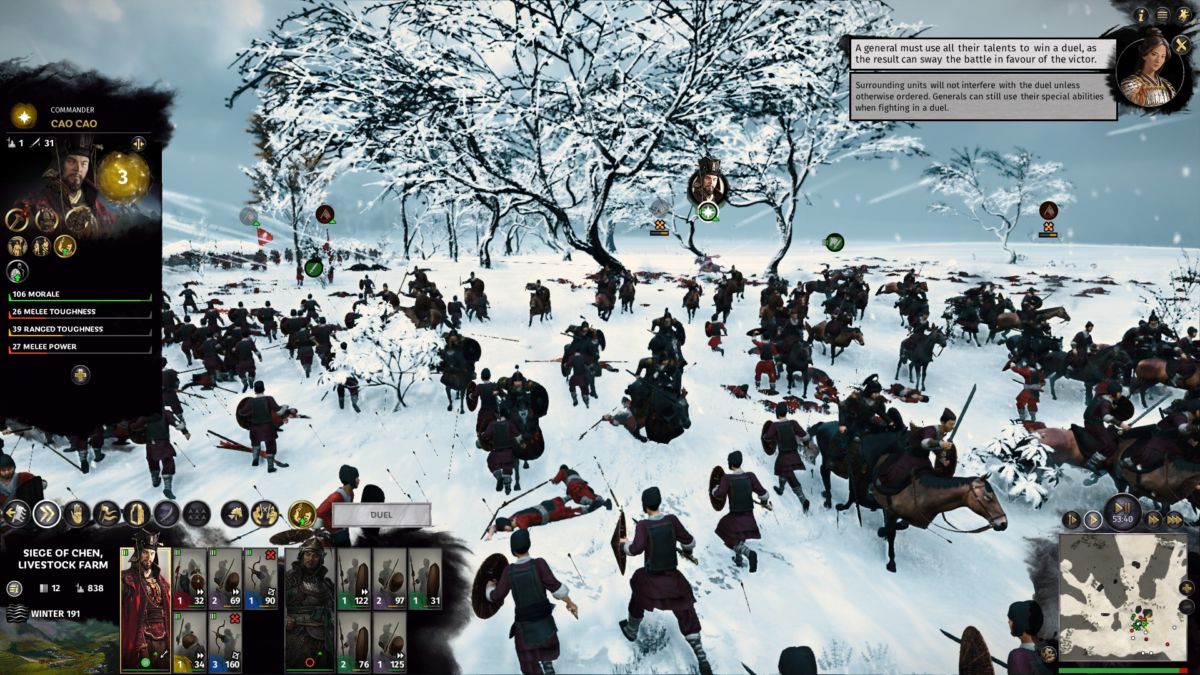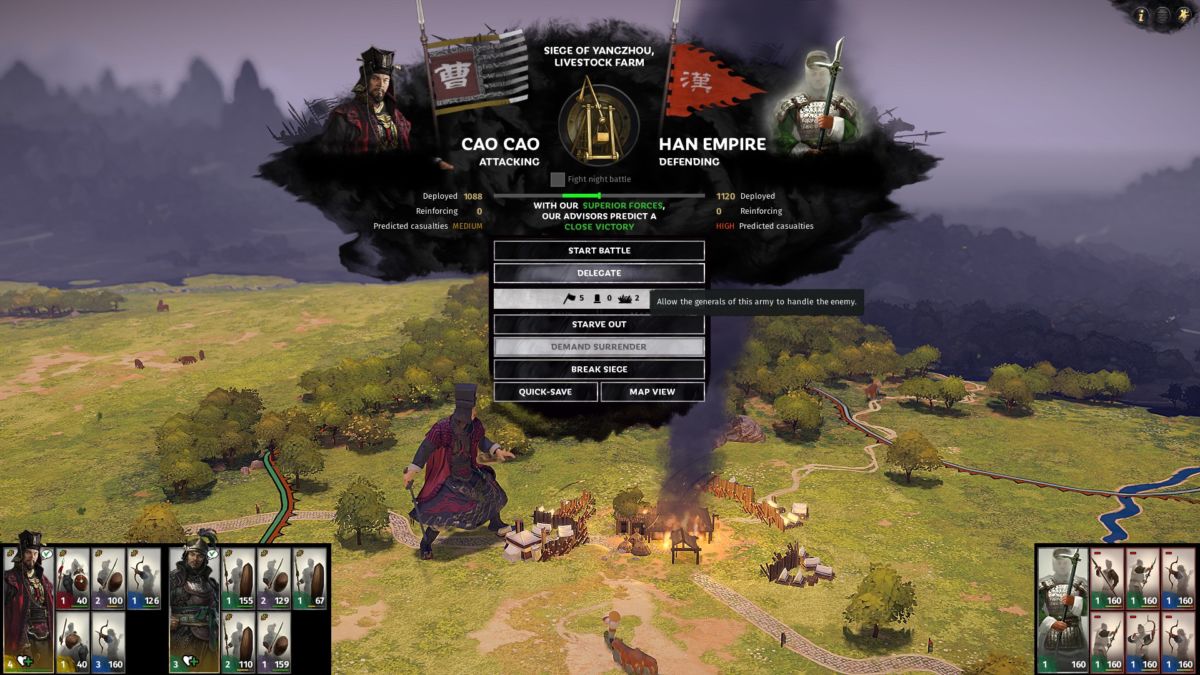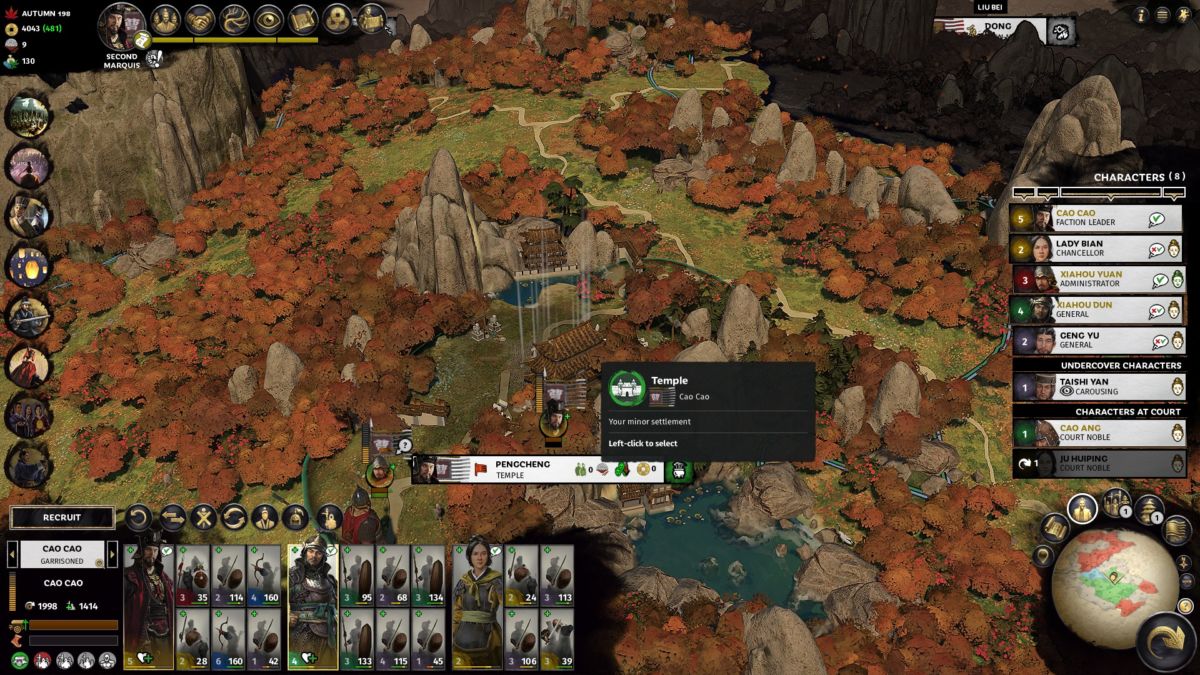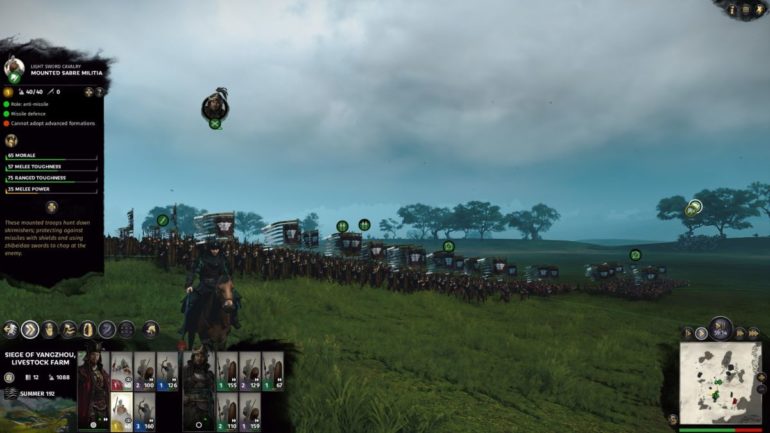Total War: Three Kingdoms is finally here and not only is it a fantastic Total War game, but it also manages to revamp and renew several aspects of the core gameplay in the series. The biggest of these might be how characters, Generals and armies interact with each other. To help out those who might be struggling with the new mechanics, I have put together this here Three Kingdoms guide to help you along.
First and foremost, this applies to the Romance version of the campaign as this is the playstyle that departs most radically from previous games in the series.
The Five Elements

In Three Kingdoms, the Chinese notion of the five elements Earth, Metal, Water, Earth, and Fire plays a central part in how characters and units are organized. Stemming from the ancient philosophy of Wu Xing, it provides the basis of how your characters balance each other or help mitigate weaknesses and so on. For instance, fire counters metal but creates the earth element, according to this line of thinking.
In Total War, this is translated into character attributes and unit strengths. A fire type character (Vanguard) is expected to perform well against metal characters (Sentinel) and units but less so against water(Strategist) characters and units. This color coding and division comes again and again throughout the entire game and you are likely to encounter it a lot.
Characters and Archetypes

Characters in Three Kingdoms are essentially divided into two main groups: Normal, generic characters and legendary characters. Legendary characters are your historical figures, and these are faction leaders or legendary fighters. It is among the legendary pool you will find Lu Bu and Cao Cao, if you are familiar with Dynasty Warriors. Furthermore, each character is divided into different archetypes which are corresponding to the five elements of Wu Xing. All characters come with special abilities and their own strengths and weaknesses.
Vanguard
Vanguards correspond to fire and are represented by the color red in Three Kingdoms. These commanders focus on fast-moving cavalry. They are all about smashing into enemy lines, causing mayhem and destruction as they go. They usually come with a generous boost to the instinct stat, which affects recruitment cost and melee damage.
Sentinel
These characters focus on infantry tactics and melee. They correspond to grey and metal is their Wu Xing element. They field the strongest infantry who are excellent at defense and locking down territory. They have higher expertise stat which gives them a bonus to industry and evasion.
Strategists
These tactical virtuosos are of the water element and predominantly make use of missile weapons and siege engines. Aside from warfare, they are also adept at diplomacy and trade.
Champions
As the name implies, these are your duelists. They are the best heroes to send after enemy Generals as they can be very tough to beat in a fight. They are of the wood element and favors population growth and makes good use of spear infantry.
Commanders
Commanders make use of heavier melee cavalry and are used to boost the morale of troops and characters. They are of the earth element and gain boosts to authority, which also increases income.
Assignments

Assignments play a big part in Three Kingdoms and these short term missions can really make a huge difference for your faction. The simplest assignment is to take care of a settlement or city. A character who does this will use his stats and abilities to do things like boosting the economy, suppress rebellions or increase growth. While he is off managing a city, the character will be unavailable to fight in battles, however.
Another big thing in Three Kingdoms is espionage assignments. Instead of having special units spy on enemies, this task is relegated to your Generals and officers. Sending a character to an enemy faction will make him recruitable to that faction. Once recruited he will start to undermine them and try to instigate a rebellion. Its a powerful and fun tool to play around with, but keep in mind that the same thing can happen to you as well.
Lastly, we have court positions. These appointments are very important for the overall health of your empire as without a strong court, you will be unlikely to succeed. Characters with court appointments can still be part of armies and fight on the battlefield so no need to worry about losing out on good fighters. Make sure you select characters whom you can trust and are unlikely to join an enemy faction. Having a general betray you is bad enough but having your Prime Minister do it is a disaster.
Retinues

One of the biggest departures from previous Total War games is in the way unit recruitment works. Instead of building barracks and recruiting faceless units, Three Kingdoms employs the retinue system.
Each army can have up to three characters in it, and each character has up to six units attached to him or her. What units are available for you to recruit largely depend on what type your character is. Units also stick with your character, you cannot swap units between different character or armies without the General coming along. The road to success is often finding a mix of characters in your army which can recruit a good mix of units. For instance, having a strategist with access to good ranged and siege units is something I found absolutely essential.
That’s a quick run-through of how characters and Generals work in Three Kingdoms. It’s a rather flexible system that just makes for more unpredictable and satisfying gameplay.
Buy Total War: Three Kingdoms on Humble
Some of the coverage you find on Cultured Vultures contains affiliate links, which provide us with small commissions based on purchases made from visiting our site.

